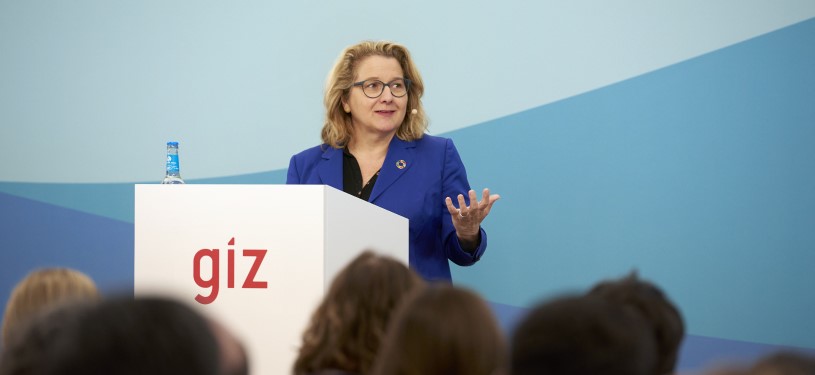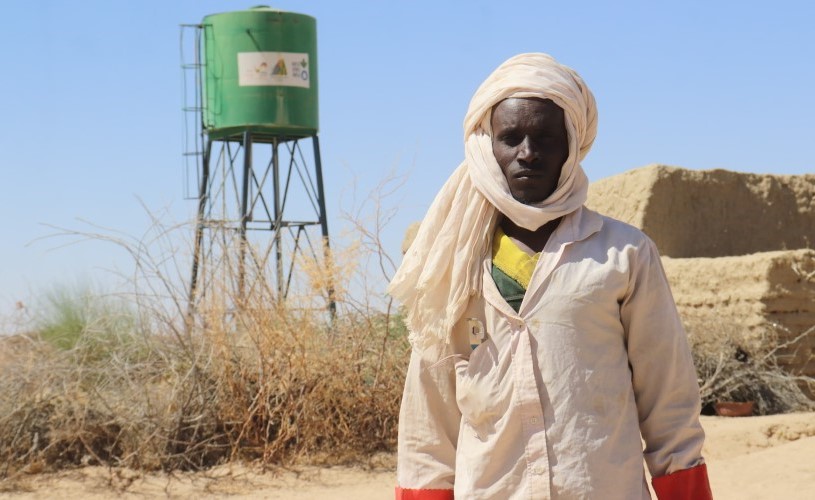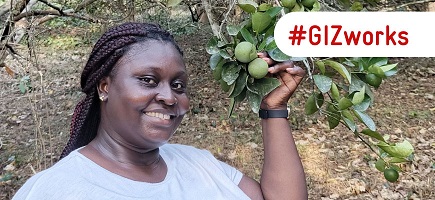
18.02.2025
Svenja Schulze: ‘GIZ is part of the DNA of development policy’
During her visit to Eschborn, the Federal Minister thanked GIZ for its commitment and emphasised the role of partnerships in development cooperation.
The visit focused on GIZ’s work in fragile countries and worldwide. Schulze talked about the importance of international cooperation in view of global challenges such as war, displacement and climate change.
In this context, she noted that partnerships have been a vital key for 50 years: ‘When the Deutsche Gesellschaft für Technische Zusammenarbeit was founded in 1975, Germany had only just been admitted into the United Nations. Germany wanted to be more involved at the multilateral level. At the time, development policy was a key lever. And it remains so to this day.’ Today, development policy is about more than technical and financial support for the partner countries: ‘It is about social policy, peace policy, economic policy. And it is also about security policy.’
Development cooperation is therefore in Germany’s interests. Schulze explained: ‘It is important that we develop more stable partnerships in the world, and maintain and strengthen them.’ This is precisely what GIZ does in its day-to-day work in the partner countries: ‘They maintain the energy supply for people in Ukraine. They establish hospital partnerships with Syria. And in places that are not in the world’s spotlight, be it in Kenya, in Cambodia or in Colombia, that’s where they operate. They have been doing this for 50 years. This wealth of experience is incredibly important. GIZ is part of the DNA of development policy.’
In conclusion, the Federal Minister thanked the staff directly: ‘Thank you for the tremendous commitment that you bring to your work every day. And I am absolutely certain that this will continue to be needed in the next 50 years.’




